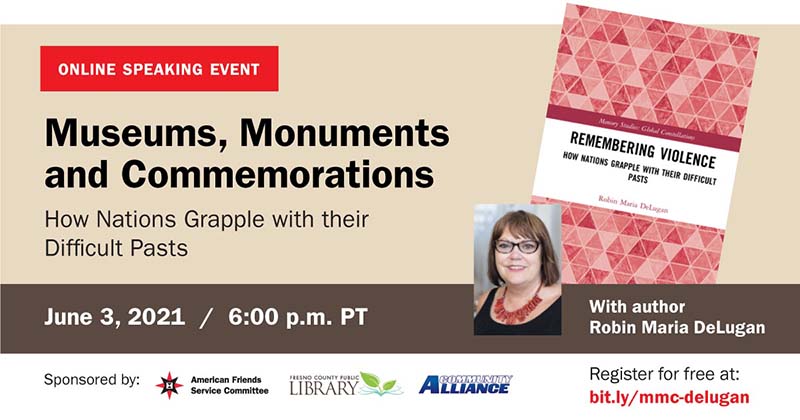Museums, Monuments and Commemorations: How Nations Grapple with their Difficult Pasts
Robin Maria DeLugan, PhD (University of California, Merced)
In my book “Remembering Violence: How Nations Grapple with their Difficult Pasts” (2020), I explore how museums, monuments and commemorations in El Salvador, Spain, and the Dominican Republic are bringing new attention to 1930’s violence that is linked to 20th century dictatorship and authoritarianism. Because the violence was based on exclusions of race and ethnicity that still define the nations today, I argue that the focus on historical memory is an attempt to confront and also transform the meaning of national belonging. What lessons can we draw from these case studies that apply to the Central Valley, California, and the United States?
Dr. Robin Maria DeLugan Sociocultural Anthropologist
Dr. Robin Maria DeLugan is a sociocultural anthropologist whose research focuses on nation-states, nation-building, social memory and national belonging. She is Associate Professor of Anthropology at the. University of California, Merced where she is founding faculty in Anthropology and also promotes community engaged research. She received her BA MA, and PhD in Anthropology from the University of California, Berkeley, and her AA degree from City College of San Francisco. DeLugan is the author of “Remembering Violence: How Nations Grapple with their Difficult Pasts” (Routledge 2020) and “Reimagining National Belonging: Post-civil war El Salvador in a Global Context (University of Arizona Press, 2013) and numerous journal articles, book chapters, and public opinion essays.


